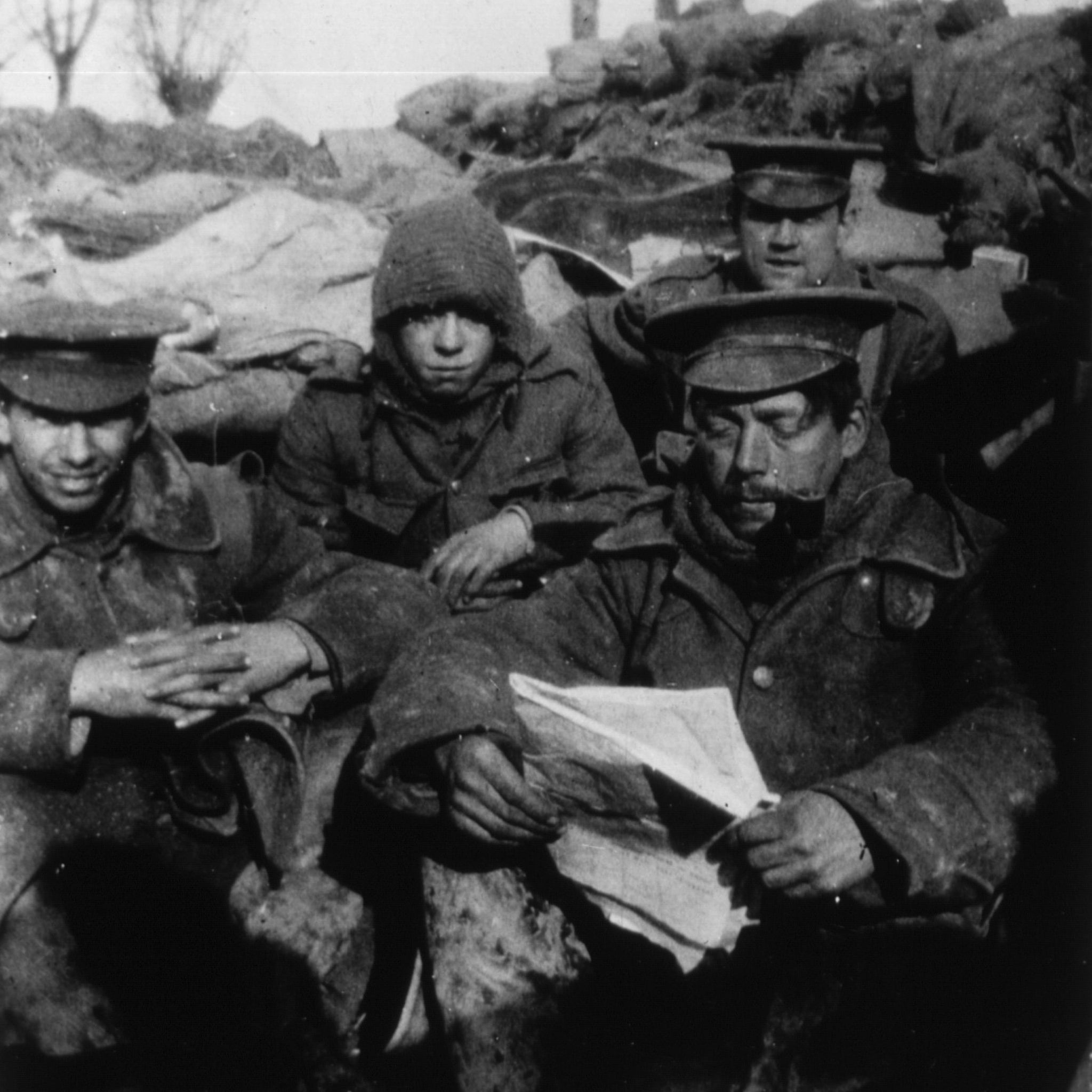Paperback reviews: Hundred Days, Stasiland, Ebola, The Lie, Byron: Life and Legend
Lloyd shows life on the ground for troops

Hundred Days by Nick Lloyd (Penguin £9.99)
George Orwell wrote that although the disasters of the First World War – Ypres, the Somme, Passchendaele – were widely known, “the great battles that finally broke the German armies” were simply unknown to the British public. Nick Lloyd’s history of the last three months of the Great War should go some way toward repairing that deficiency. Lloyd conveys the epic sweep of events, as the allied troops relentlessly pushed the German divisions back, with staggering losses: by the time the Germans had retreated to the Antwerp-Meuse line they had lost more than 400,000 men.
Lloyd also gives the worm’s eye-view of what it was like for the men on the ground, drawing on letters and diaries from Allied and German troops. He is expert at bringing to life, in a few lines, the characters of the top brass: General Foch, for example, was “not notably tall and had deep-set eyes, a large moustache and a high forehead”; he wore a blue tunic, smoked cheap cigars and was “as resilient as a rubber ball”. Half an hour after receiving the news that his only son had been killed in action, he was busy planning the next attack.
The “stab in the back” – the notion that the German army was undefeated and was betrayed by politicians in Berlin – is a myth. By this stage of the war, the Allies had evolved far more effective fighting strategies, using precisely targeted artillery and tank support, and swift movement of troops – and this, plus the decisive reinforcement from American soldiers, meant that German defeat was inevitable. At last, on 11 November 1918, the guns fell silent.
****
Stasiland by Anna Funder (Granta £9.99)
When I began reading Stasiland, I assumed it was a novel, or a linked series of short stories. In fact, it is a superb piece of historical reportage on life in East Germany, from its inception until the fall of the Wall in 1989. Funder skilfully deploys fictional techniques to make the material jump off the page: crafted scenes with their own story-arcs, naturalistic dialogue, fully-realised characters with their own plotlines. Funder tours the prisons and torture chambers, and interviews the victims of the regime: a young woman whose husband died in custody in unexplained circumstances; innocents imprisoned on the say-so of informers; a woman separated from her baby by the Wall. She also talks to ex-Stasi men, all of whom appear unrepentant, even proud of their past. The atmosphere of grey grimness is vividly conveyed; but there are flashes of humour too. I liked the account of the Stasi propagandist von Schnitzler, nicknamed “von Schni ...” because everyone dived for the off-switch when he came on the radio.
*****
Ebola by David Quammen (Bodley Head £5.99)
A slim volume, extracted from Quammen’s longer book, Spillover, this is a timely update on the fight against the Ebola virus. Ebola is a “zoonotic” virus: that is, it “hides” in the bodies of host animals, to which it is not fatal, but jumps across the species barrier given the opportunity – which is why it goes quiet for long periods and then flares up. If we could discover the host, we’d have a better chance of defeating it. Quammen details the efforts of American, European and African researchers to find out more about the virus, working in jungles and laboratories, often at great personal risk. And much progress has been made. We still don’t know the host animal; but the best guess is, it’s a bat.
****
The Lie by Hesh Kestin (Scribe £8.99)
The Lie is a political thriller set in Israel. Dahlia Barr, a human rights lawyer, is asked by the Israeli police to become the official arbiter on when torture of suspects is permissible. Barr is against torture; but then her 20-year-old son is kidnapped by Hezbollah. And Professor Al-Masri, a Palestinian activist and old schoolfriend of hers, is in police custody, and knows, but won’t tell, how to trace her son .... Technically, a well-crafted thriller; but Kestin’s partisan support for the Israelis feels too obvious. Arabs are criticised for being argumentative, cowardly, and even for not having produced any chess champions. Nor do I make this criticism from an anti-Zionist perspective. I just think writers should grind their axes less conspicuously.
***
Byron: Life and Legend by Fiona Maccarthy (John Murray £16.99)
A magisterial account of Byron’s life as a poet, public figure, and serial shagger, this 674-page biography is both scholarly and readable. MacCarthy deals with Byron’s homosexuality (repressed in England, indulged in Greece and Turkey), his seductions of just about every woman who crossed his path – from maidservants to Lady Caroline Lamb – his incestuous relationship with his half-sister Augusta, and his cruel treatment of his wife Annabella. An aristocrat with liberal principles, a bounder with a sensitive side, Byron isn’t likeable, but he is fascinating. MacCarthy also pays due attention to the poetry, and charts his posthumous influence on figures as diverse as Disraeli, Oscar Wilde, and W H Auden.
****
Subscribe to Independent Premium to bookmark this article
Want to bookmark your favourite articles and stories to read or reference later? Start your Independent Premium subscription today.

Join our commenting forum
Join thought-provoking conversations, follow other Independent readers and see their replies